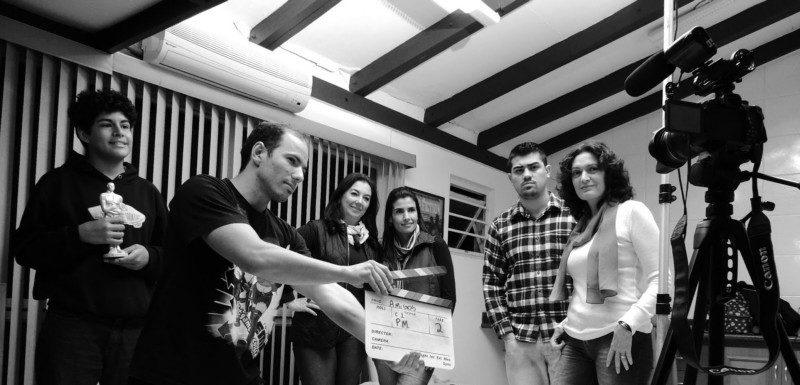
‘Experience is the teacher of all things’ — so said a once mighty Julius Caesar, who knew a thing or two about leadership. While we don’t recommend adopting a dictatorial approach to reforming tax systems (albeit for the better) or engaging in warfare, we do advocate trying new things simply because of what you might learn.
When it comes to extra-curricular activities, thinking outside the usual ‘hobby’ box is worthwhile, because you’ll be taught new skills that will be not only transferable to a leadership role, but can actually make you better at your job. To prove our point, we asked a number of CTO Craft coaches what they do in their downtime to broaden their skill set and how it helped them in management positions.
Studying outside of your field
James Newbery, formerly the Director of Engineering at Fanduel, found studying psychology immensely useful because it taught him specific techniques for analysing and understanding human behaviour in the context of complex technological systems. As a result, he found that he is better able to forecast and address issues that arise within teams, and recognise when to use various motivators to both push and recompense people when seeking resolutions.
Those that wish to add to more the standard educational repertoire will also reap the rewards. Regardless of level, self-led learning can have a positive effect on learning efficacy, memory retention and promote discipline. Plus, if it is something you do for your own reasons rather than because you have to means you’re more like to remain committed and an engaged, devoted leader is often one who has an engaged, devoted team.

Boundary-pushing activities
If you ever fancied yourself as the next Chris Rock, Susan Sarandon or Bear Grylls, but decided against stardom as your main vocation, hobbies that take you out of your comfort zone are well worth getting into. Whether it’s unleashing those creative juices or simply boosting your adrenaline levels, doing something that engages your brain on an innovative, but practical level can be very beneficial for new tech leads. Why? Because it teaches new and different ways of communicating, problem-solving and responsiveness.
For people like Defined Outcomes’ Technical Director, James Maidment, who regularly goes rock climbing, he finds that putting himself in a situation where there is an immediate — and visceral — perceived risk helps him take a step back. Work-related issues that have become overly important due to a loss of perspective and might feel insurmountable, pale into insignificance when he realised that climbing assisted him with visualising the bigger picture. Although it may seem small, to him the distorted (and rather high) frame of reference means that:
“Not falling off becomes much, (much) more important than everything else in that very moment.”
Theatrical Improvisation classes and dramatic writing were similarly beneficial for technology MD at Annalect, James Aylett. Relying on himself and others for an impromptu narrative to work, bettered his listening and observation skills and enhanced his creative-thinking abilities, all of which fed back into his work and made him more communicative and directional as a leader.
Sports coaching / refereeing
It’s been said before that coaching is ‘the universal language of changing and learning’, and it is not only for those being coached, but also those doing the coaching. This extends to refereeing and teaching as all require you to think about how to best impart knowledge and effect learning before you do it. In addition, officiating an activity demands an exercise in judgment and the ability to ‘keep cool’. Being in situations that often involve a test of patience can hone self-control and improve interpersonal relationships. Consultant CTO and kiteboarding aficionado Fergus Doyle enjoyed the sport so much, he trained to become a qualified instructor. The position required him to train people to ignore existing muscle memory and artificially encourage the right behaviour. In a tech context, these skills became relevant when he had to lead teams through inflection points where certain habits need to be broken and reformed.
In the same vein, both James Newbery and consultant Douglas Squirrel found that cricket umpiring bolstered their confidence and taught them to be assertive even in circumstances when they felt unsure, and to make a decision — and stick to it — in the face of much opposition. This is crucial when directing a team through direct challenges and changes, and when collaborating with other departments within a company. As James says:
“[There’s] nothing like having a burly fast bowler screaming at you on a Saturday afternoon to practice your conflict resolution skills.”
Whether it’s jumping off walls and buildings (strategy and risk analysis) or constructing model train sets (attention to detail), every hobby teaches you something about yourself and how you interact with superiors, peers and juniors. The trick is to understand what you get from it and then maximise it to make you the type of leader that not only thinks outside of the box — they get rid of the box entirely.
***
Want to hear even more about learning and development? We’ll be covering all this and other great topics at our forthcoming CTO Craft Con Winter 2021, 8th – 11th November. Get your ticket here now!
If you or your CTO / technology lead would benefit from any of the services offered by the CTO Craft community, use the Contact Us button at the top or email us here and we’ll be in touch!
Subscribe to Tech Manager Weekly for a free weekly dose of tech culture, hiring, development, process and more.

